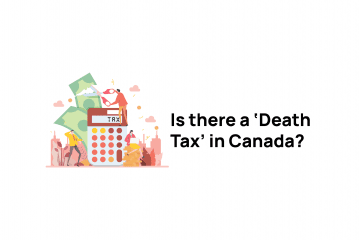Overview
Whole life is a type of permanent life insurance (as opposed to term life insurance). There are two basic types of whole life insurance – guaranteed and non-guaranteed.
Guaranteed whole life insurance has two primary features; level premiums for your entire life and a cash surrender value available if you cancel the policy. Quick pay policies are also available, where your premiums are compressed down to 10, 15 or 20 years rather than over your entire lifetime.
Non-guaranteed whole life insurance typically centers around a feature called dividends. Life insurance policy dividends are a refund of your own premiums and as such are not normally subject to taxation. These dividends are then used to do things like pay down your premiums or purchase additional insurance. However these dividends are sensitive to changes in investment earnings and are not guaranteed. As a result features that depend on dividends (premiums may increase, coverage may decrease, your policy may require premiums past when you though tit would be paid up) are also not guaranteed and may not perform as you expected when you purchased your policy.
While much of the life insurance industry’s focus with whole life centers around things like dividends and cash surrender values, the primary purpose you should be considering this coverage for is if you need life insurance for your entire lifetime. If you are seeking estate planning or payment of taxes upon your death, to leave an inheritance, to provide a lifetime policy on your child or grandchild, or to pay your funeral costs then whole life is a suitable product because it provides coverage for your entire life.
Life Insurance Canada.com advises consumers interested in purchasing whole life insurance to only consider fully guaranteed life insurance policies, and particularly if your intention is to keep the policy for your entire lifetime. Given the long term nature of these policies, features that are not guaranteed over the long term seem to have a bad habit of being changed and not to the benefit of the consumer. A classic example of this in practices is the ‘vanishing premium’ lawsuits in the 1990’s. Canadian consumers successfully sued life insurance companies over the failure of whole life policies to become paid up (no more premiums due) as the result of non-guaranteed options in the policy.
If you are intending to keep your policy for your entire lifetime then you should also consider the two other types of permanent life insurance – universal life and term to 100. If you are researching these policies however note that universal life insurance has two variations; one that has guaranteed level costs for life and one that may have projected level premiums but that are not guaranteed. And be cautious when looking at term to 100 policies as some companies have taken to naming their whole life policies as Term to 100.
In the end, if you are shopping for whole life insurance, focus on the lifetime coverage first and foremost. How much life insurance coverage do you require for your entire life? After that, focus on the lowest premiums for the various life insurance companies. Other attributes such as cash values should be a distant third consideration from there. Cash values will also have a dramatic effect on the premiums of the policy.
It is highly recommended that you consult with a life insurance professional if you are considering purchasing whole life insurance (or any type of life insurance for that matter). Whole life insurance is a long term financial decision so it is imperative that you make sure that you purchase the right policy from the beginning. We have seen many people cancel whole life insurance policies only after having them for a few years which usually results in a large loss of money.
Frequently Asked Questions
What is whole life insurance?
Whole life insurance is a type of permanent life insurance, meaning that policy holders are covered for their whole life and are guaranteed a death benefit when they pass away. Whole life insurance also typically comes with an increasing cash value component and fixed premiums. These features make whole life insurance a good option for those seeking lifetime coverage with an investment component.
Can you cash in your insurance policy?
Yes, whole life insurance policy holders can choose to surrender their policy (or a portion of it) for cash. In this case, the policy holder would forgo their death benefit and receive the cash surrender value, which is typically the policy’s cash value minus any policy management fees. As a general rule, the longer your policy is active, the greater the cash surrender value will be.
How can participating whole life insurance benefit me?
Participating whole life insurance is a type of policy that has the potential to issue annual dividends to the policy holder. In short, the policy holder pays a higher rate of premium, but can earn money back if the life insurance company performs well. These dividends can be used to pay down premiums, be withdrawn for cash, be used to purchase more insurance or can accrue interest in a savings account.
How to use life insurance to create wealth?
While whole life insurance is a good way to protect your family, it can also be an effective way to create wealth. For one, whole life insurance passes wealth down generationally, ensuring your dependents receive a tax free lump sum (via death benefit) when you die. It is also a good investment option because a whole life insurance policy’s cash value increases over time, which can be used as liquid assets or collateral in your lifetime.
Should I get term or whole life insurance?
There is no single right answer to this question. Just as term life insurance is the best fit for some people, whole life insurance is good for others. In general, if you’re looking for affordable premiums and coverage for a specific number of years (for example, until you retire or your children grow up), term life insurance is your best bet. If you are looking for more long-term coverage with an investment savings component, whole life insurance is the way to go.
How much is life insurance?
The cost of whole life insurance varies depending on a number of factors. For starters, the size of your policy (i.e. the amount of coverage) will greatly influence how much you pay in premiums. Other factors like type of whole life insurance policy, your age, health, smoking status and lifestyle will also come into play. In general, whole life insurance is significantly more expensive than term life insurance because it is virtually guaranteed that the insurance company will issue a death benefit (as long as premiums are paid and policy conditions are met). Request a custom quote for whole life insurance or speak to a member of our team for more help.
Is life insurance a good investment?
Whole life insurance can be a great investment, especially if you are looking for a way to protect your family and pass wealth down to your dependents when you pass away. Whole life insurance is also a good investment in the sense that policy holders can reinvest the cash value of their policy to grow their wealth or use the cash value as collateral for loans.
What happens if you cancel my insurance policy?
If you decide to cancel your whole life insurance policy, the effects will vary depending on your policy conditions. If you cancel your policy within the first few years (known as the ‘surrender period’) you will not get any cash value and may even be subject to penalties. If you choose to cancel your policy further down the line—say after a decade of paying premiums—you will be entitled to the cash surrender value, a largely tax free sum.
What are the benefits of a whole life insurance policy?
A key benefit to whole life insurance is lifelong coverage: as long as premiums are paid, the policy holder’s beneficiaries will be entitled to the death benefit. Another advantage
of whole life insurance is guaranteed cash value: the longer a policy is active, the more the cash value increases, and the policy holder can access it at their discretion. Other benefits include fixed premium rates for a lifetime, the potential to earn dividends (with participating life insurance) and the ability to take out a tax free policy loan, using the policy’s cash value as collateral.
Does life insurance require a medical exam?
The short answer is no, it is not necessary to undergo a medical exam to qualify for whole life insurance. However, there are a number of advantages to purchasing a fully underwritten life insurance policy with medical exam. Chief among them is cost. A no medical whole life insurance policy has higher premiums because the life insurance company takes on a greater risk by insuring you. Second, the amount of coverage you qualify for will be lower than someone who has undergone a medical examination. You can learn more about no medical life insurance here.
Can I convert my term life insurance to whole life insurance?
Yes, it is possible to convert term life insurance to a permanent life insurance policy if you have a convertible policy. There are a number of reasons converting to whole life insurance could be a good idea. For one, you can usually convert your policy type without having to undergo additional medical underwriting, which saves time and hassle. Second, whole life insurance will provide the benefit of a cash value, which you can access during your lifetime. Finally, you will guarantee that your beneficiaries receive the tax free death benefit when you die.
Companies that offer Whole Life Insurance
Most—but not all—life insurance companies in Canada provide an option for whole life insurance. Below are some of the top life insurance providers for whole life insurance. Not sure which is the best option for you? We can help with custom whole life insurance quotes. Please contact us if you have any additional questions or request a quote.
• Sun Life Insurance
• Empire Life Insurance
• Wawanesa Life
• Equitable Life
• Manulife
• Canada Protection Plan





